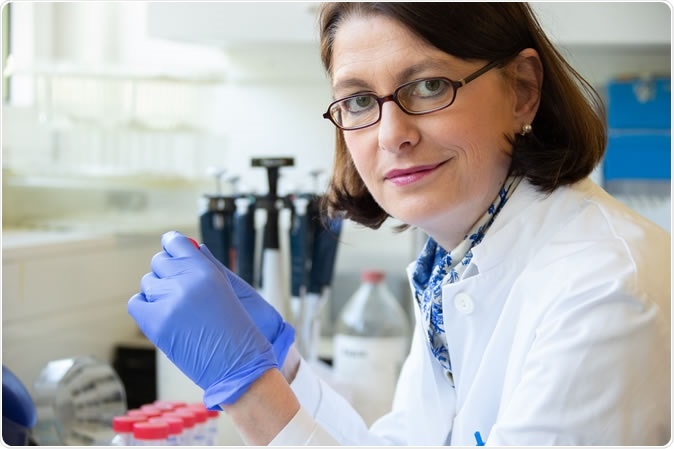One of the problems faced by health officials today is the vast number of asymptomatic carriers of severe acute respiratory syndrome coronavirus 2 (SARS-CoV-2) as they can still transmit the virus. Therefore the testing of as many people as possible is crucial for immediate isolation of cases to prevent the virus from spreading further.
Testing is still a huge problem across many countries due to the lack of testing kits and equipment. Now, a team of scientists from Germany has developed a novel way to increase coronavirus testing capacity.
The study, which is published in the journal The Lancet Infectious Diseases, highlights the development of a procedure wherein countries can boost coronavirus testing capacity to meet the high demand for testing. Mass testing is essential in the early identification and isolation of people who do not manifest symptoms.
Researchers at the Institute of Virology at Saarland University Medical Center, Homburg, Germany, propose the pooling of samples prior to RNA reverse transcription-polymerase chain reaction (RT-PCR testing). When a group sample returns positive, that is the only time people will then need to be screened individually. This pooling approach reduces the number of tests needed and, therefore, test kits.
What is pool testing?
Pool testing is a method wherein the virus can be detected in samples that are combined for faster results. In this method, the resources are maximized, being able to test more people for the virus. For instance, swab samples from the nose or throat are combined in a buffer solution and tested for the presence of the SARS-CoV-2.
If a group of samples tested positive for the virus, that is the time they test each sample again to see which one yielded a positive result. In the study, the team investigated the viral load during symptomatic infection with the novel coronavirus, to determine the effect of pooling samples on the sensitivity of RT-PCR.
To do this, they compared the cycle threshold (Ct) values of pools that were positive with the Ct values of individual samples that tested positive. They isolated RNA from the swabs using an instrument called the NucliSens easy MAG. They have been using the procedure at Saarland University Hospital since mid-March to protect vulnerable patients from infection, especially from those who are unaware they are infected.
Since the screening method has proven successful, it has been used to screen residents and staff at nursing care homes in the area.

Univ.-Prof. Dr. Med. Sigrun Smola. Image Credit: Rüdiger Koop / UKS
“To protect those groups with high mortality risk from the coronavirus, we need to prevent the introduction of the virus from asymptomatic individuals, including the medical and care staff that look after them. Groups most at risk include chronically ill hospital patients, such as those with cardiovascular disease or cancer, the elderly, and, most especially, the residents of nursing homes and residential care homes. Prevention is only possible if we use large-scale testing to identify asymptomatic contact persons and thus avert infection of the most vulnerable,” Sigrun Smola, Professor of Virology at the Saarland University and Director of the Institute of Virology at Saarland University Hospital, said.
Saving on test kits
The new procedure can help reduce the demand for test kits since many countries are grappling with the coronavirus pandemic. Ramping up testing in many countries is crucial to prevent the rapid spread of the virus, which has now left many countries in lockdowns for months.
In the study, the researchers found that generating a pool of 30 samples from three sub-pools of ten samples can reduce retesting. Also, if the large pool turns out positive, the three sub-pools are reanalyzed, and then the individual samples.
When they analyzed the results of the pool testing method between March 13 and 21, they found that of the 1,191 samples, there was only a need for 267 tests, detecting 23 positive individuals.
The researchers suggest that pooling of up to 30 samples per pool can also boost test capacity with existing equipment and test kits. Further, pool testing can be used for asymptomatic carriers, while it can detect positive samples with enough diagnostic capacity.
“We must mention that borderline positive single samples might escape detection in large pools. We see these samples typically in convalescent patients 14–21 days after symptomatic infection. The pool size can accommodate different infection scenarios and be optimized according to infrastructure constraints,” the team wrote in the paper.
Since the team has started using the method at a hospital, it is now being used to screen residents in 131 nursing and residential care homes in Saarland, where most patients are vulnerable. The testing in those facilities will help protect elderly groups who are at most risk from COVID-19 infection. An estimated 22,000 people will be tested.
“We have also received numerous urgent inquiries from hospitals in Germany and abroad, as testing capacity limitations are proving to be a critical issue at this moment,” Smola added.
Sources:
Journal reference: